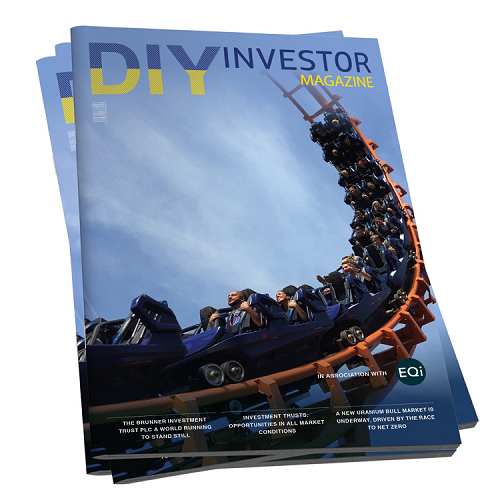Dec
2022
Japan – A differentiator in tumultuous times
DIY Investor
21 December 2022


The world seems a particularly unnerving place for investors at present, even by recent standards. High inflation, rising interest rates and the associated risk of recession in some major economies have generated high levels of financial market volatility.
The war in Ukraine is driving up energy and commodity prices, compounding inflation pressures, while world leaders and political pundits assess the likelihood that Russia will escalate the conflict by deploying tactical nuclear weapons.
In China, the government has spooked markets with surprise crackdowns on property developers and internet companies and heavy-handed, but seemingly futile, zero-covid restrictions which are damaging the economy. In the UK, the ongoing political battle has weakened equity markets, seriously destabilised the bond market and driven the pound to a forty year low against the US Dollar.
‘A balm for investors’ jangled nerves, and many associated investment’
Against such a background, Japan’s stable liberal democracy, strong rule of law, regulatory predictability, low inflation environment, and ongoing commitment to digitalisation appear to offer a balm for investors’ jangled nerves, and many associated investment opportunities. In addition, the cash reserves of Japanese companies far exceed those of US and European businesses. This is especially reassuring at a time when many major economies face recession.
Extensive local resources generate alpha
JPMorgan Japanese Investment Trust (JFJ) is one of the largest and oldest closed-end funds offering investors access to the Japanese equity market. The company adopts a high conviction, long term approach, seeking out high quality, innovative Japanese companies from across the market cap spectrum that are leading the world in growth industries such as e-commerce, robotics and computer gaming.
JFJ is managed by a Tokyo-based team of 25 Japan investment professionals, providing the vital local insights needed to uncover value in an under-researched market. Such extensive, on-the-ground resources give JFJ’s managers a significant competitive advantage in their efforts to deliver excess investment returns over the long-term.
Recent portfolio changes and positioning focused on growth
Although the Japanese economy is not afflicted by the same risks of inflation and rising interest rates as other major economies, its equity markets have not escaped the same broad-based correction experienced elsewhere.
Even the quality companies which are JFJ’s focus have come under pressure, despite the fact that their favourable long-term growth prospects remain unchanged. For JFJ’s managers, the market decline has therefore created many new opportunities to move money into top quality growth businesses at more attractive multiples.
Recent acquisitions have included AIN Holdings, which operates retail pharmacies and is benefiting from deregulation of this historically fragmented market. For example, chemists are now permitted to operate inside large hospitals, allowing them to increase market share and scale up operations by offering a more conveniently-located service to consumers.
JFJ’s managers have also invested in JSR, a market leading producer of specialist chemicals, including for use in electronic components, Nippon Sanso, Japan’s major industrial gas manufacturer, and Nippon Paint, which has a dominant market share in Japan and China.
‘e-commerce remains a favoured theme for JFJ’s managers due to the sector’s huge growth potential’
All these businesses look especially attractive now, as their strong market positions mean they possess the pricing power to pass on rising input costs to end consumers.
In addition to these new acquisitions, e-commerce remains a favoured theme for JFJ’s managers due to the sector’s huge growth potential. Only 11% of Japanese retail sales are conducted on-line – a much lower percentage than in other industrialised countries.
The managers have taken advantage of the recent market sell-off to invest in the likes of GMO Payment Gateway, Japan’s number one online payments processor, and MonotaRO, the country’s top business to business e-commerce company, providing safety equipment and clothing, tools and other business supplies, which are well-positioned to benefit. GMO Payment Gateway’s operating profits have been growing by more than 20% a year, while MonotaRO’s sales have been consistently growing by close to 20% a year.
JFJ’s managers have also maintained their long-standing conviction in the favourable long-term prospects for robotics. Levels of industrial automation are still relatively lower in most places, but recent supply chain insecurities and rising wage costs are likely to accelerate this trend as companies seek to onshore production and automate processes to minimise labour costs.
The portfolio includes several of the world’s leading factory automation companies including Keyence, SMC and MISUMI. JFJ’s managers remain equally confident in the growth potential of the computer gaming sector. This sector is becoming more profitable due to gamers’ increasing willingness to pay to download games and purchase related content. Top 10 portfolio holding Nintendo is a major beneficiary of this trend.
Recent acquisitions have been funded by the sale of positions in some internet and software companies where the managers’ conviction has waned due to the companies’ failure to realise their growth potential, or where competition has increased. For example, they have sold their holding in digital signature company Bengo4.com, which is experiencing very intense competition. They have also sold Rakuten, a large e-commerce company whose unsuccessful foray into mobile phone sales is generating large losses.
Long term quality and growth focus overcomes near term challenges
Despite the current pervasive uncertainties and market volatility, JFJ’s managers believe the long-term outlook for Japan’s most innovative, high quality, high growth companies remains very positive.
And they remain confident that whatever the near-term challenges, the quality and growth focus of their investment approach is the best way to ensure the Trust maintains its long track record of generating significant outright gains and outperformance for its shareholders. This is especially the case at present, when market conditions have provided many opportunities to acquire high quality, high growth businesses at especially attractive prices.
More information on JFJ here >
More Insights
Sign-up to our investment trust emails
Whether you’re looking for a monthly all-round update from our insights team, or timely updates on our individual trusts. Sign-up to trust emails here >
On the Minds of Investors
Drawing on the depth and breadth of their market and economic expertise, our global macro strategists offer insight into today’s big investment themes to enable more confident portfolio decisions.
Views on today’s key investment themes >

Nicholas Weindling, Portfolio Manager of the JPMorgan Japanese Investment Trust’s latest update

This is a marketing communication and as such the views contained herein do not form part of an offer, nor are they to be taken as advice or a recommendation, to buy or sell any investment or interest thereto. Reliance upon information in this material is at the sole discretion of the reader. Any research in this document has been obtained and may have been acted upon by J.P. Morgan Asset Management for its own purpose. The results of such research are being made available as additional information and do not necessarily reflect the views of J.P. Morgan Asset Management. Any forecasts, figures, opinions, statements of financial market trends or investment techniques and strategies expressed are unless otherwise stated, J.P. Morgan Asset Management’s own at the date of this document. They are considered to be reliable at the time of writing, may not necessarily be all inclusive and are not guaranteed as to accuracy. They may be
subject to change without reference or notification to you. It should be noted that the value of investments and the income from them may fluctuate in accordance with market conditions and taxation agreements and investors may not get back the full amount invested. Changes in exchange rates may have an adverse effect on the value, price or income of the products or underlying overseas investments. Past performance and yield are not reliable indicators of current and future results. There is no guarantee that any forecast made will come to pass. Furthermore, whilst it is the intention to achieve the investment objective of the investment products, there can be no assurance that those objectives will be met. J.P. Morgan Asset Management is the brand name for the asset management business of JPMorgan Chase & Co. and its affiliates worldwide. To the extent permitted by applicable law, we may record telephone calls and monitor electronic communications to comply with our legal and regulatory obligations and internal policies. Personal data will be collected, stored and processed by J.P. Morgan Asset Management in accordance with our EMEA Privacy Policy www.jpmorgan.com/emea-privacy-policy. Investment is subject to documentation. The Annual Reports and Financial Statements, AIFMD art. 23 Investor Disclosure Document and PRIIPs Key Information Document can be obtained free of charge in English from JPMorgan Funds Limited or at www.jpmam.co.uk/investmenttrust. This communication is issued by JPMorgan Asset Management (UK) Limited, which is authorised and regulated in the UK by the Financial Conduct Authority. Registered in England No: 01161446. Registered address: 25 Bank Street, Canary Wharf, London E14 5JP
Brokers Commentary » Commentary » Investment trusts Commentary » Investment trusts Latest » Latest » Mutual funds Commentary » Uncategorized

Leave a Reply
You must be logged in to post a comment.